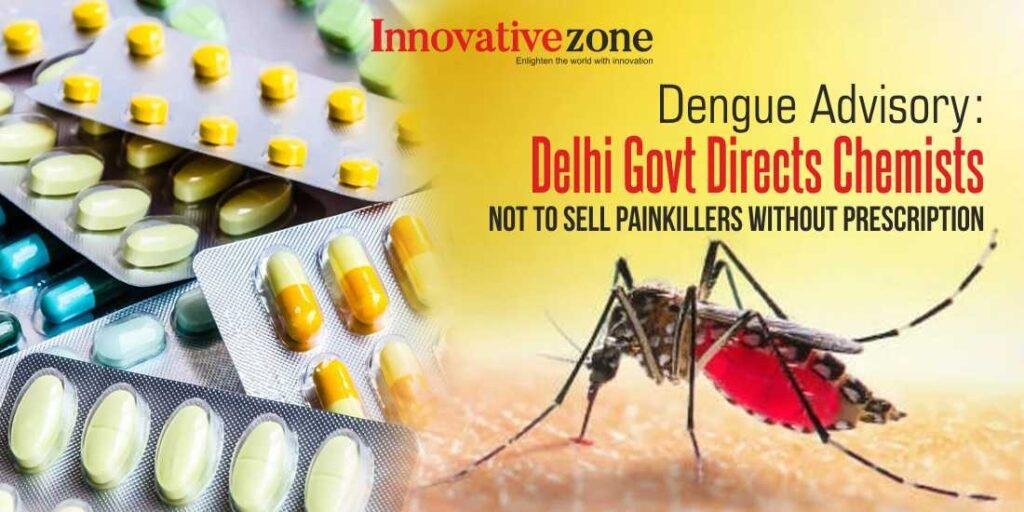Dengue Advisory: Delhi Govt Directs Chemists Not to Sell Painkillers Without Prescription
Written by Sanjay Kumar
The Delhi government’s Department of Drugs Control has issued a letter to the president of All Chemist Associations of Delhi, urging them to refrain from selling non-steroidal anti-inflammatory drugs (NSAIDs) such as Aspirin, Ibuprofen, and Diclofenac without a valid prescription from a regular medical practitioner. The reason behind this advisory is the anticipated rise in vector-borne diseases during the monsoon season, requiring close monitoring. Medical experts have warned that unmonitored usage of these drugs can have fatal consequences for patients suffering from vector-borne diseases.
The department explicitly instructed retail chemists to immediately halt over-the-counter sales of these medicines and also advised them to maintain records of their painkiller drug stocks falling under this category. Strict action will be taken against any retail chemists found violating this directive.
An official from the drugs control department clarified that such advisories are issued annually, but this year’s warning holds particular significance due to the recent flooding in Delhi.
Dr. Rommel Tickoo, the director of internal medicine at Max Super Speciality Hospital in Saket, highlighted the risks associated with using over-the-counter NSAIDs during the vector-borne disease season. These drugs can lead to a decrease in platelet count, gastritis, and kidney failure. Dr. Tickoo emphasized that patients should only take paracetamol for fever and should immediately consult a doctor for any concerns.
Dr Tickoo said he saw 5-6 dengue patients in the last 4-5 days, out of which one was shifted to the ICU and was in shock. “It’s known as dengue shock syndrome… and can be fatal if not treated. He had extremely high haemoglobin. He also had multiple organ failure… Had he been not admitted, it could have turned fatal. He was in the ICU for six days. Apart from that, there have been routine cases of fever, nausea, vomiting, etc,” he added.
Lok Nayak Hospital’s fever clinic has already admitted 59 dengue patients since January, indicating the severity of the vector-borne disease situation in Delhi.
A municipal report released on Monday (July 17) indicates that the national capital has witnessed more than 160 cases of dengue till mid-July this year, marking the highest number of cases for this period since 2018. The report, issued by the Municipal Corporation of Delhi (MCD), also notes that 54 cases of malaria have been recorded during the same time frame.
In response to the concerning situation, the Delhi health minister conducted a high-level meeting with various stakeholder departments to assess their preparedness in tackling vector-borne diseases during the monsoon season. The minister directed all attending officials, representing the health department, MCD, NDMC, Delhi Jal Board, irrigation & flood control department, and education department, to implement stringent measures to prevent the spread of vector-borne diseases.
Must Read:-
- Top 10 Largest Oceans and Seas in the World
- Top 10 automobile companies in India 2023
- Top 10 Electrical Companies in India 2023
- Top 10 Real Estate Companies in India-2023
- Top 10 most awaited & upcoming Hindi web series 2023-24
- Top 10 Clothing Brands in India 2023
- Top 10 best cultures in the world-2023
- Top 10 best country to work and live in 2023
- Top 10 best country for education 2023
- Top 10 Most Followed Celebrities on Instagram 2023
- The Inspiring Success Story of Bear Grylls
- Top 10 Business Coaches in The World to Guide Entrepreneurs In 2023
- Top 10 movies based on True Stories you must watch before you die
- Top 10 Best Online Doctor Consultation Apps in USA


